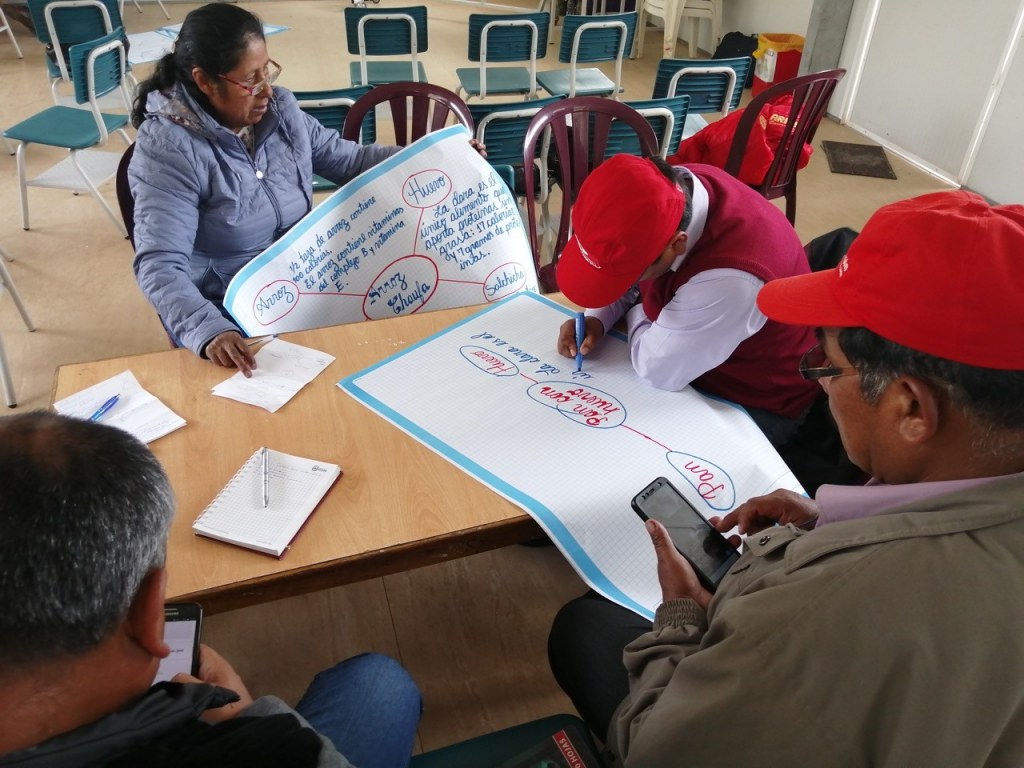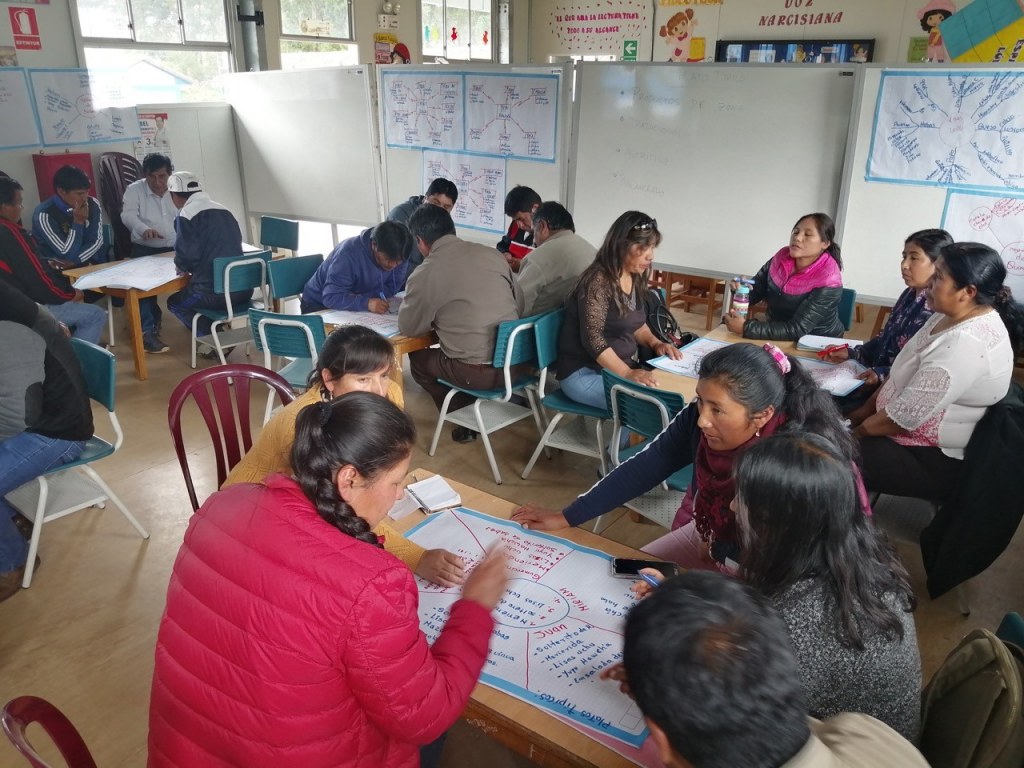
Since late last year Alma has been working with 14 educational specialists and 2,218 teachers from the UGEL Quispicanchi to use Alma’s unique teaching methodology based in local indigenous knowledge, critical and creative thinking, harmonious values, and state mandated academic competencies in order achieve the goals set forth in Peru’s national curriculum for all of the Quispicanchi province’s pre, primary, and secondary schools and 34,598 students.
However, after wrapping our first intensive training with a group of teachers in early March, Peru was put on state quarantine and the school year was postponed indefinitely. Nevertheless, the educational specialists and teachers by then embraced the Alma methodology, and we were thrilled when teachers began reaching out with questions about the new remote learning guidelines set out by the Ministry of Education. There was confusion around how to adapt lesson plans meant for face-to-face learning to a remote reality, but more than anything, we were hearing about the difficulties of creating realistic lesson plans for rural communities.
The obstacles boiled down to three main problems:
1) How do teachers explain lesson plans to students and their parents when they live outside of the range of cell phone service, and even when they can get to a covered area, most don’t know how to use the mobile apps and social networks needed to send and receive documents, audio, and video messages?
2) Families in rural areas produce their own food, build their own homes, and in almost all ways live off of the land and their own labor. Now that students aren’t physically in a classroom during a defined schedule, how do teachers convince parents to pull children away from household work that provides food, clothing, and shelter to prioritize homework sent from a faraway teacher?
3) The Ministry of Education created a remote learning platform that provides general topics of study through internet, television, and radio to be elaborated on by teachers with their students. However, these topics are generally related to life in coastal cities, and due to the above two problems, most students in rural areas never hear the program.
After countless hours of conversation with teachers, and by pulling from our years of experience working directly with students and parents in rural Andean communities, Alma developed a unique proposal for remote learning for rural communities, built around three key components:
1) Repetitive but adaptable tasks: Teachers cannot communicate with students and parents, so sending lesson plans requiring detailed instruction from a teacher is simply not an option. Therefore, based on our experience with “home strategies” for parents in our regular Alma projects, we developed a package of simple, fun, but thought provoking and educational activities that students can quickly understand and perform over and over, with a different purpose or product every time, without the need for in depth nor continuous instruction.
2) Household work: Parents need their children to work, and few will pull their children away from their chores in order to do homework. This was always the case and it is highlighted during the pandemic and resulting remote learning. Therefore, all repetitive tasks must be based on the students’ chores. Instead of creating a competition between academic and household priorities, our educational activities join the two.
3) Academic competencies: The Ministry of Education outlined specific focus areas and academic competencies that teachers must help students achieve. We outlined and clarified the links between all of the repetitive tasks based on household work and the focus areas and academic competencies, to assure that teachers can confidently create lesson plans that achieve the goals in the National Curriculum. The tasks and activities can also be linked to the Ministry’s radio program and adapted to the students’ reality through the focuses and competencies.
This week, after a series of meeting and edits with the UGEL’s educational specialists, we presented Alma’s remote learning proposal to the director and specialists for pre, primary, and secondary school levels. Not only were the specialists excited (and a little relieved) to have a strong remote learning proposal for students in rural communities, the specialists also continued to offer valuable suggestions which helped us address the specific needs of teachers and students in the UGEL Quispicanchi.On Thursday, each proposal will be reviewed by a select group of twenty enthusiastic teachers from the respective grade level to hear their ideas before rolling the proposal out to all teachers in rural communities within the province!
We are all excited about the meaningful impact Alma can have on the quality of instruction and learning during the COVID-19 pandemic, and are confident that students, parents, and teachers will be able to use our proposal to enrich an academic year many are already considering lost.

